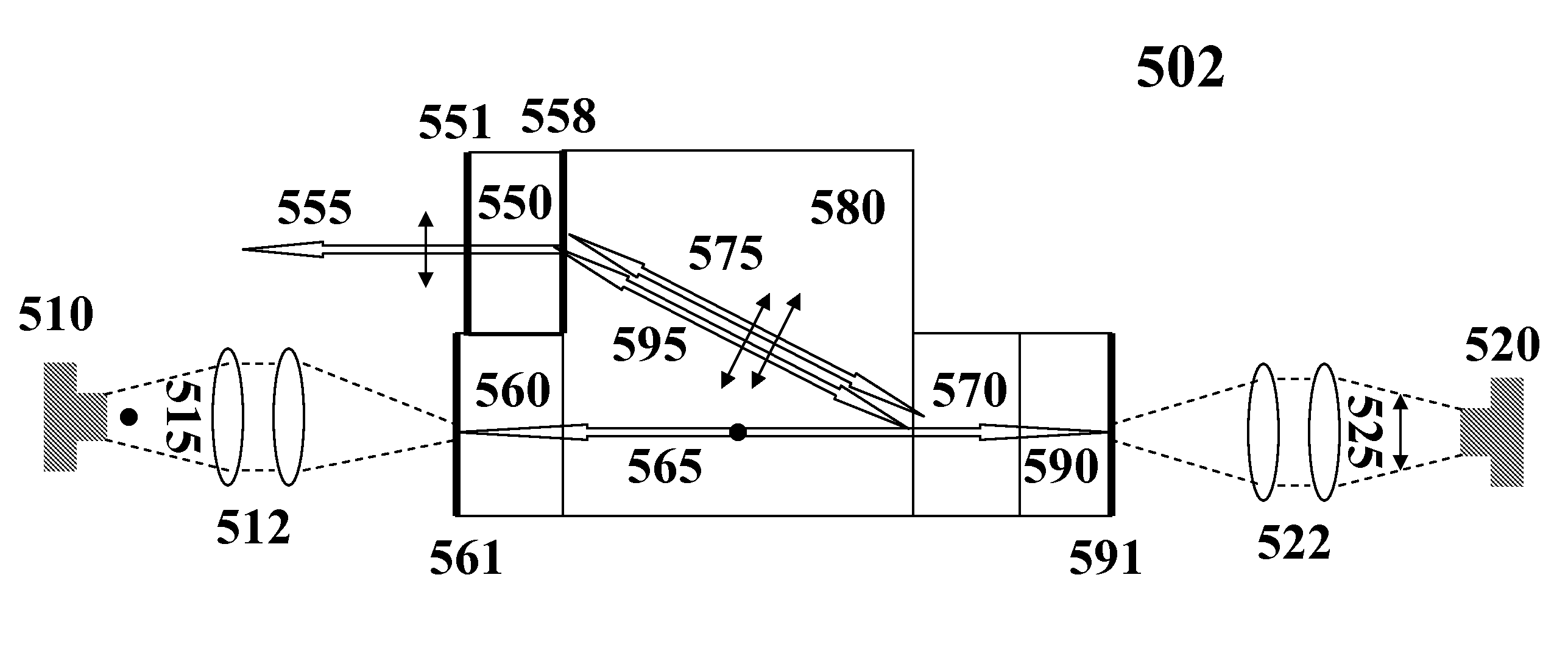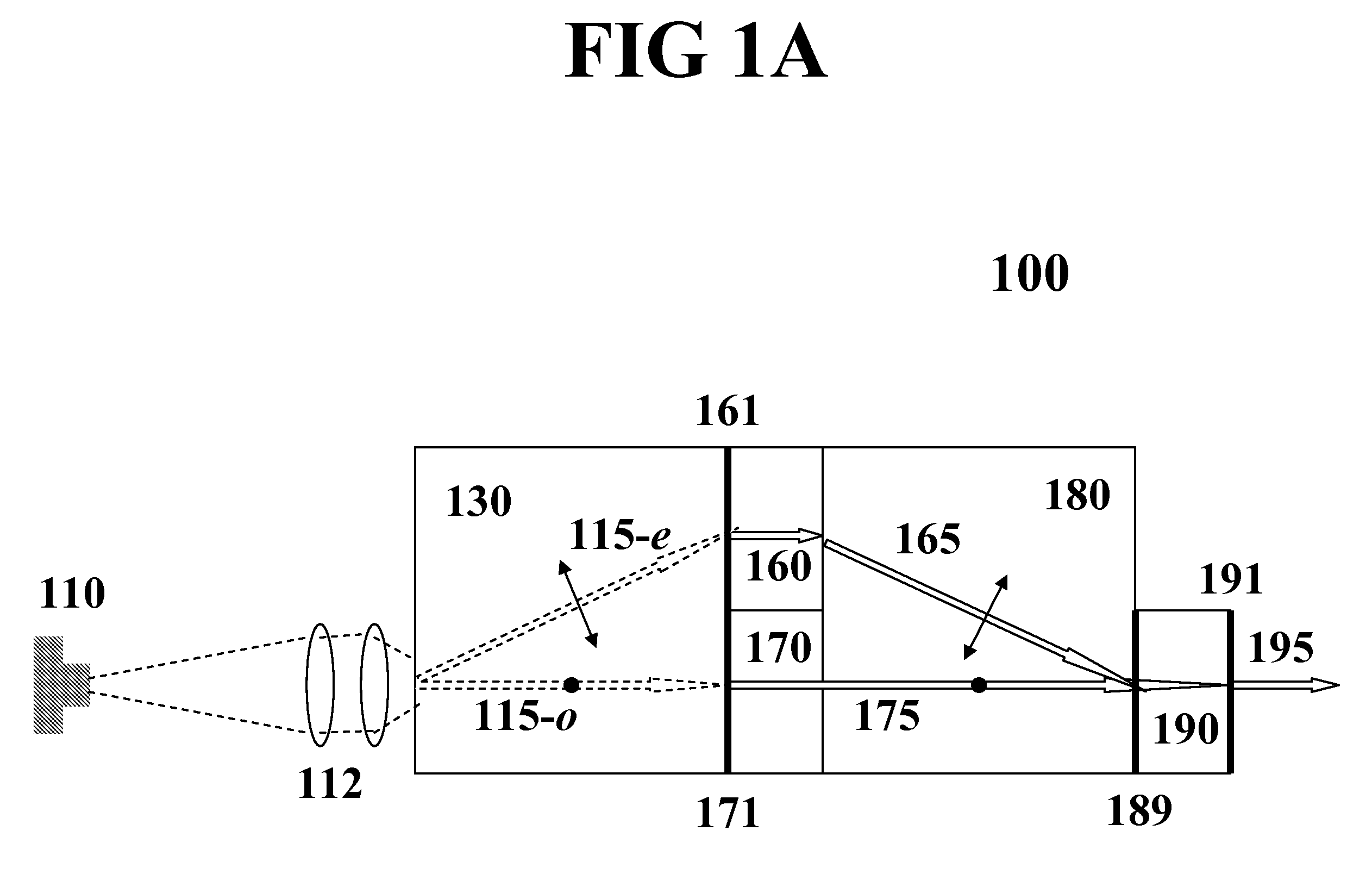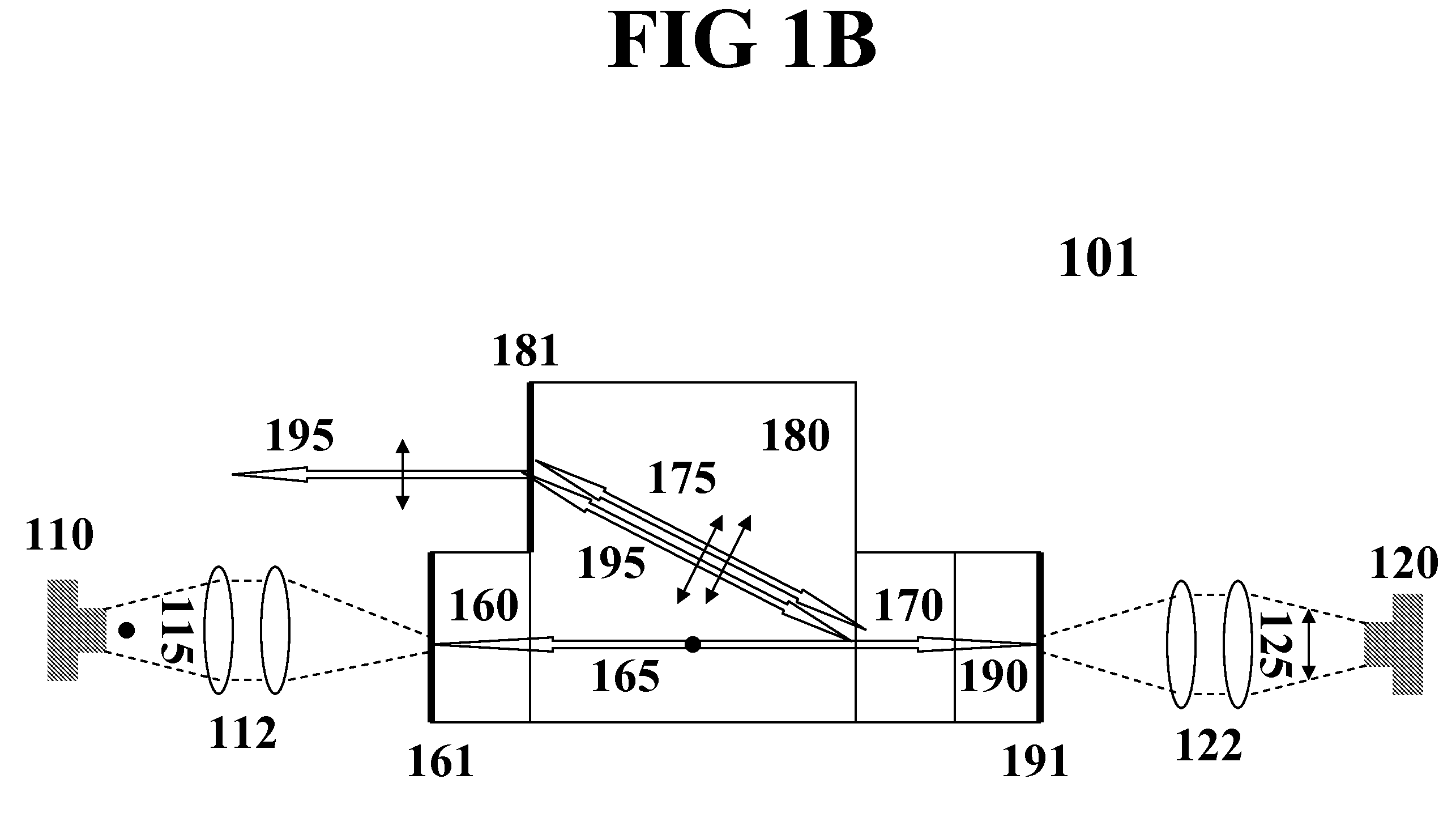Low-noise monolithic microchip lasers capable of producing wavelengths ranging from IR to UV based on efficient and cost-effective frequency conversion
a monolithic, low-noise technology, applied in the direction of laser details, active medium shape and construction, optical resonator shape and construction, etc., can solve the problems of high cost, high cost, and inability to meet the requirements of coherent uv light, and achieve efficient and cost-effective frequency conversion
- Summary
- Abstract
- Description
- Claims
- Application Information
AI Technical Summary
Benefits of technology
Problems solved by technology
Method used
Image
Examples
Embodiment Construction
[0039]Applicants are providing this description, which includes drawings and examples of specific embodiments, to give a broad representation of the invention. Various changes and modifications within the spirit and scope of the invention will become apparent to those skilled in the art from this description and by practice of the invention. The scope of the invention is not intended to be limited to the particular forms disclosed and the invention covers all modifications, equivalents, and alternatives falling within the spirit and scope of the invention as defined by the claims.
[0040]Referring now to the drawings and in particular to FIG. 1A, wherein a preferred embodiment for monolithic microchip laser based on inventive scheme of intracavity beam combining and frequency mixing is shown. The monolithic microchip laser 100 comprises a laser diode or other light source 110, beam shaping element 112, birefringent crystal 130, laser gain media 160 and 170, another birefringent crysta...
PUM
 Login to View More
Login to View More Abstract
Description
Claims
Application Information
 Login to View More
Login to View More - R&D
- Intellectual Property
- Life Sciences
- Materials
- Tech Scout
- Unparalleled Data Quality
- Higher Quality Content
- 60% Fewer Hallucinations
Browse by: Latest US Patents, China's latest patents, Technical Efficacy Thesaurus, Application Domain, Technology Topic, Popular Technical Reports.
© 2025 PatSnap. All rights reserved.Legal|Privacy policy|Modern Slavery Act Transparency Statement|Sitemap|About US| Contact US: help@patsnap.com



